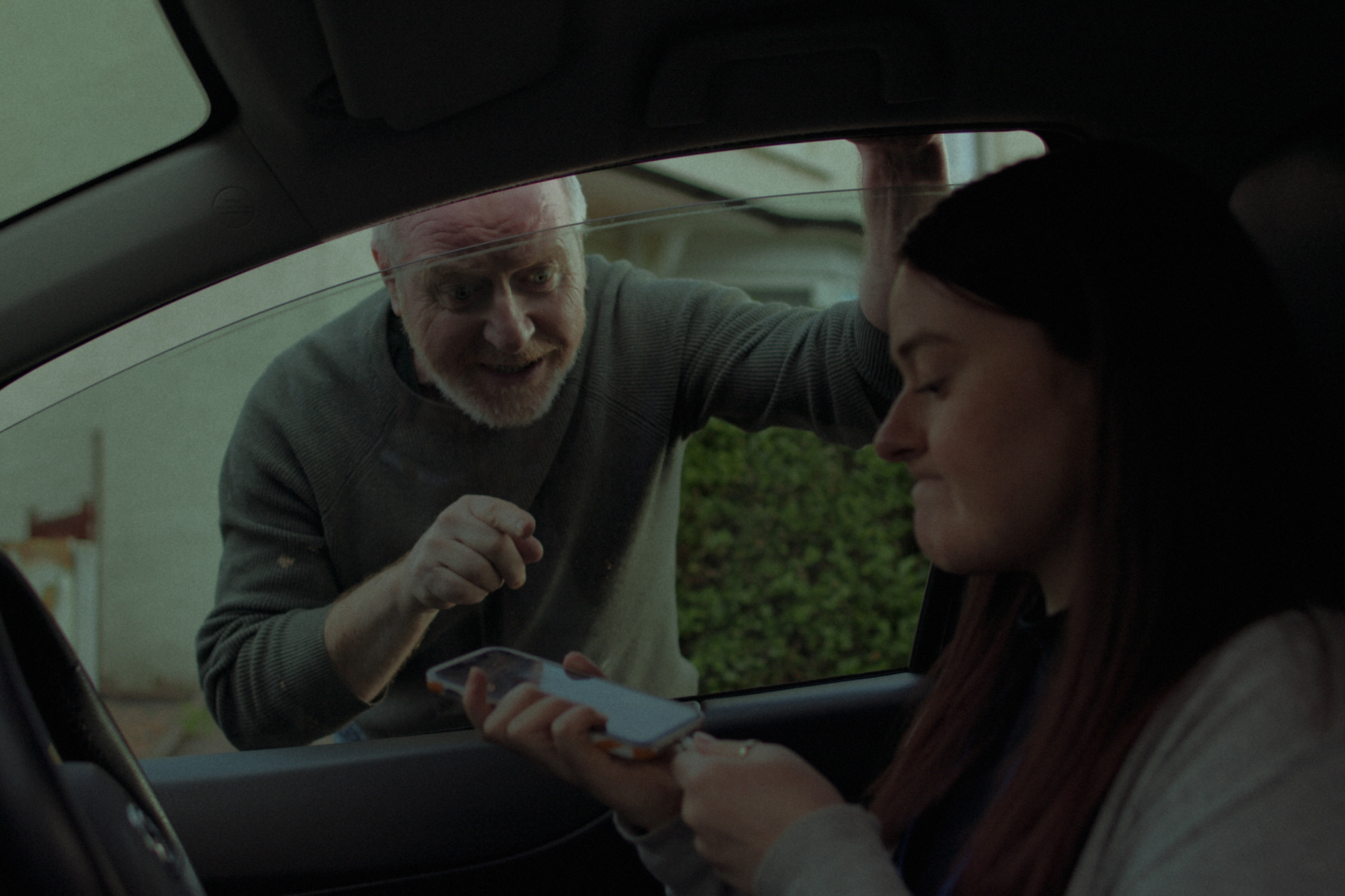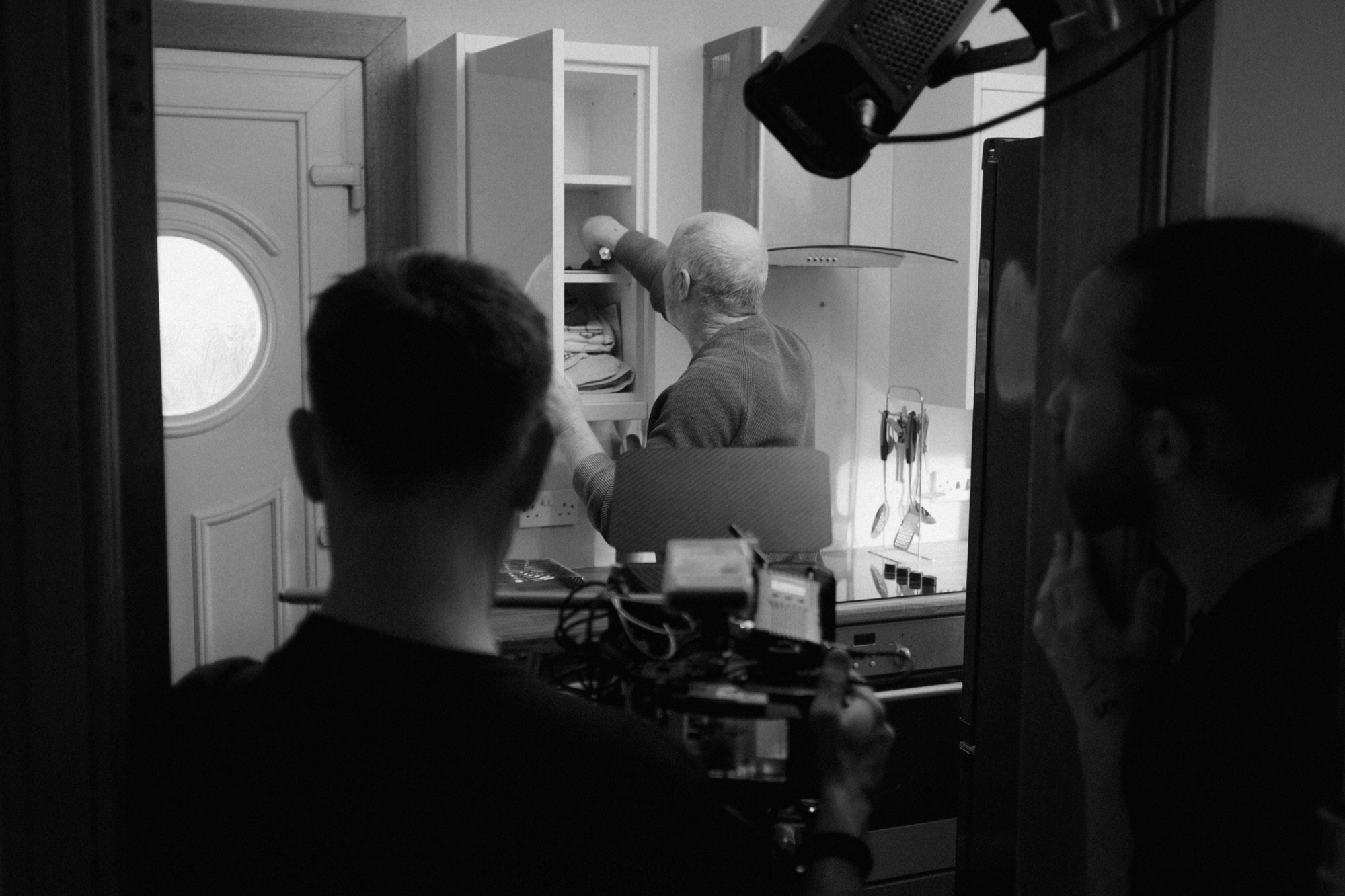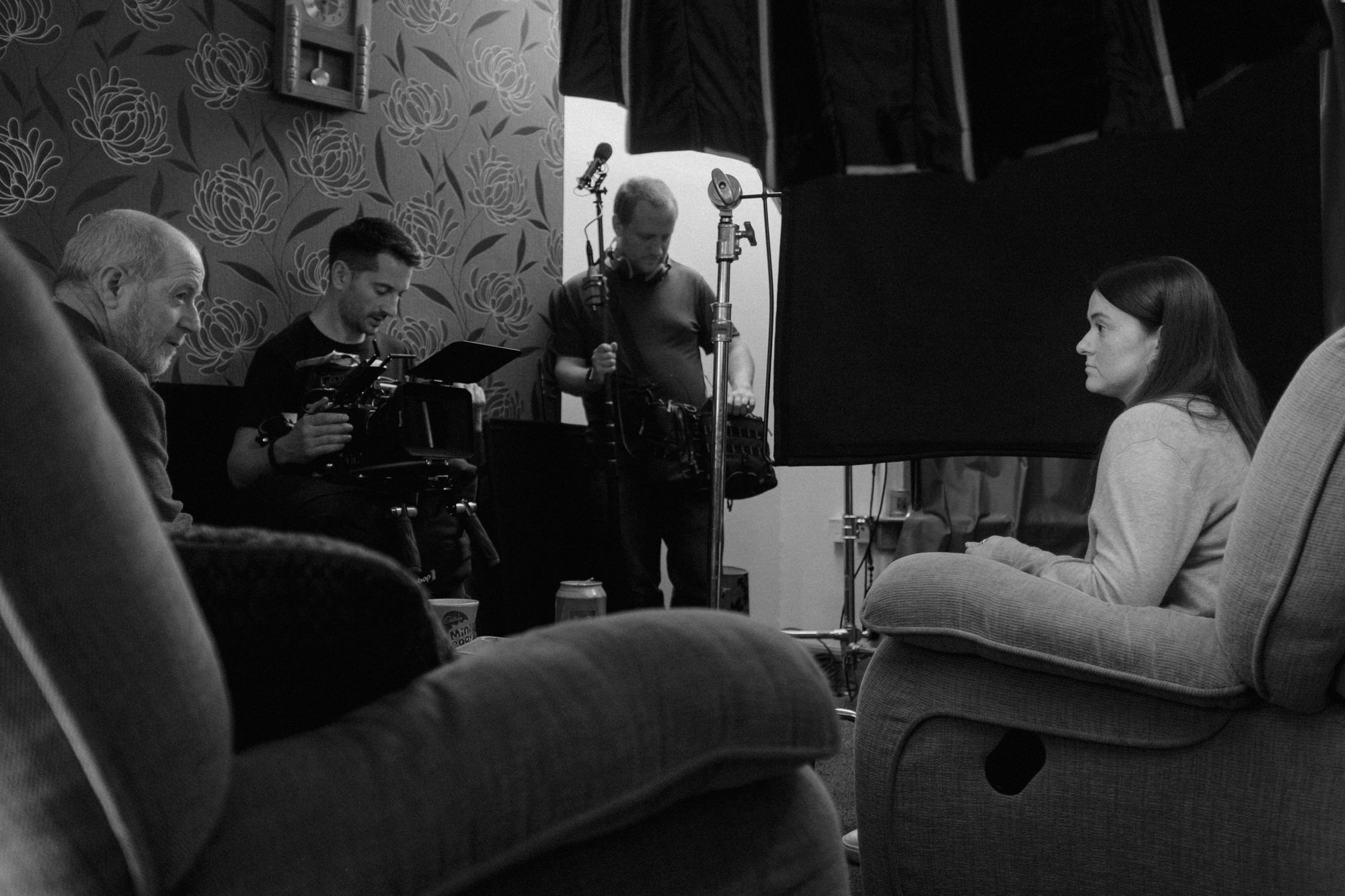Brian is inflicting directions while Kerry finds the address on Google Maps.
BRIAN:
Up that road for a mile.
You start to smell the tannery, that’s your turning.
KERRY:
I’ve already deployed the map!
BRIAN:
Drive up the road with all the oak trees.
If you hit the American sweetgum, you’ve gone too far.
Seriously, Though - Shoot Something

Every aspiring screenwriter has heard some version of this advice: just grab a couple of buddies and an iPhone, and shoot something to show off your writing. And if you’re like me, it’ll strike you - at least at first - as daft, undercooked advice that might work for other people, but not someone serious like you. It’s a little like telling your pal who sings that they should go on the X Factor, in that it’s the kind of advice one could come up with after contemplating the topic for fully ten seconds.
For a while I thought it was the iPhone part that I was bristling at. A few mates, and no production value - that’s way too romantic and naked for me. The work deserves better than to be put out in draft form like that. But I now realise it’s the bit where you actually put it out in the world at all that I was so allergic to. And my snobbery for the advice? A cover for pure terror, of course.
Let me cut to the chase: I’m here to say that you should make something. I did, and it opened doors for me that would have been closed otherwise.
I know the plural of anecdote is not data, and what works for me might not work for you. But what I think is more or less universally true is: it’s so much easier to get someone to watch a three minute short than to read a three page script. And that’s the number one reason why I think if you believe in your work, you should back yourself and shoot something.
Briefly, what I did and how it paid off.
So - I wrote and directed a short film called Splain. I didn’t use an iPhone - I assembled a tiny crew and shot it with legit production values in a hired location, with a real camera. I didn’t get two buddies - I got two actors, and played a third role myself to save on budget. And I sent it to BBC Scotland and asked if they could pass it on to one of their comedy producers. Miraculously, they really liked it - and actually bought it to put out under their Short Stuff banner. They also commissioned me to make two more sketches for online, and ultimately showed two of the sketches on TV and on the BBC iPlayer.
I can’t stress enough: I’m not positioning myself as a guru. This is not the story of a TV writing juggernaut propelled into success. I’m still stood on the very first rung of the ladder here. To date, no broadcasting professional gives a shit whether I manage to keep climbing or not. And by the way, while we’re extensively caveating the situation, let me return to my earlier, almost egregious use of the word “bought”, as in “BBC Scotland bought my short”. The truth is that the venture lost money. But it truly wasn't about the money.
To make Splain, I spent almost exactly £2k of Gail and I’s cash. The commission from BBC Scotland was for three sketches - Splain, plus two more. They paid £600 per sketch - and then paid a further £300 twice in order to show two of the sketches on iPlayer and the BBC Scotland TV channel, for a total revenue of £2,400. I didn’t spend anything like that on the next two sketches - I performed in them myself and used my own house as the location, and I traded favours with the crew and did an exchange of services to keep the costs down.
So just once more, to appease my own self-awareness: this isn’t my attempted Ted Talk from atop the industry. Splain was not a masterpiece, albeit I’m very proud of it. It was my first narrative comedy sketch and an incredible learning experience. I’m still trying to break in, and I’m still an aspiring screenwriter.
But the bottom line is: making Splain opened doors for me that anybody else in my position dreams of opening. If that sounds like something you’d like to do for yourself, then you should very seriously consider shooting something as well.

How to actually do it.
Well firstly, it’s probably sensible to write something that’s as lean and economical as possible. For me on Splain, that meant writing something that could be shot in a day, with two actors in one location. You might find the very narrow creative restrictions quite helpful.
And then there’s the small matter of planning, shooting and editing the thing.
There are some corners you can cut to make your first short, and then there are the non-negotiables. I personally think the priority is to get the best actors you can persuade to be involved, plus camera, lights and sound. For me on Splain, that meant a cinematographer, Stu Gray, who also was the camera operator, plus a 1st AC (assistant camera), Tom Armstrong, who in practice assisted with every aspect of camera and lighting. Plus a sound recordist, David McKeitch, and a production assistant, Gail Kelly - who did everything from collect coffees to chip in with good advice about props and costumes.
I have worked for many years as a commercial director at Glasgow video production company We Can Rebuild Him, so I knew exactly what I was looking for, and who I wanted to work with. If you’re not similarly connected, I think the important first step is to go find a DOP or cinematographer who will do small shoots. And when you find a person whose work you admire and whom you can afford, they can advise you in terms of who else you should get (if anybody). They will also be able to recommend sound recordists.
That still leaves you needing to cover everything else yourself - from producing ahead of time, directing on the day, and editing afterwards. These are whole jobs unto themselves - but you do understand what you’re going for tonally with the work, and that will count for a lot.

Scripts are a recipe. The film is the dish.
A screenplay is a theoretical document. It’s a recipe. And the life of an aspiring screenwriter is to constantly write these recipes, convinced that the finished dish will be delicious if only some fucker would actually cook the thing.
And the thing is, scripts are hard to read. Even folk who should be good at it, like producers, development executives, agents, or other writers, struggle - with good reason. Scripts are sparse, austere documents. The intention is so often lost in the white space.
So I really would implore fellow aspiring screenwriters to give themselves the experience of getting to taste one of their own dishes. Firstly for the pleasure and satisfaction of the thing now existing forever, proving your genius and vindicating your absurd pie-in-the-sky dream. Secondly, because it shows a certain amount of personal confidence and buy-in. When you produce one of your own scripts, you’re backing yourself.
But the third great reason to do it is: prospective agents, executives, future collaborators etc. are reading your scripts imperfectly, and forming views based on what they thought you meant. They are reading your recipes and then rating the dish - but they didn’t eat the fucking dish, they only read the recipe. So serve them a slap-up meal where everything is exactly as you intended it.
Assuming you can cook, obviously.